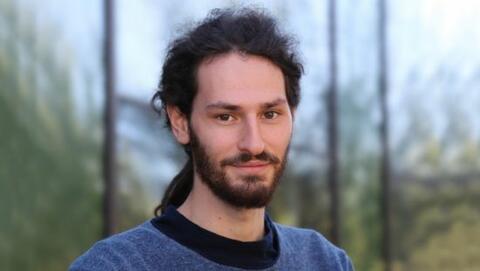
VeriQuB: a European project for ensuring the reliability of quantum systems
How can we guarantee the reliability of quantum systems? This is the challenge being addressed by an ambitious European research project called VeriQuB, coordinated by the QAT team (Inria, École normale supérieure - PSL, CNRS) at the Inria Paris centre. Its aim is to identify new methods for verifying the performance of quantum computers using bosons. Ulysse Chabaud, the project coordinator, tells us all about it.
The challenge: guaranteeing the reliability of quantum computing architectures
The ambition of the new European VeriQuB project, launched and coordinated by the Inria Paris centre, following a call for projects from the European Innovation Council (EIC) is to be able to guarantee the reliability and precision of new quantum architectures. The name of this research project stands for "efficient Verification of Quantum computing architectures using Bosons". “Bosons” are physical systems that are used as carriers of information, for example, the photons that make up the light of a laser.
The research will last 48 months and will involve four European scientific partners with complementary skills: the QAT team, working jointly with the Inria Paris centre and the École Normale Supérieure (ENS-PSL), Chalmers University of Technology in Sweden, the University of Milan, and a team from the Laboratoire Kastler Brossel joint between Sorbonne University and the CNRS. Together, their goal is to propose an efficient toolbox for verifying the reliability of quantum computing architectures using bosons. Indeed, these architectures suffer from reliability issues, even though they could soon outperform conventional computers.
An alliance between four European partners with complementary skills
Funded to the tune of €4 million by Horizon Europe (the European programme for research and innovation), the VeriQuB project will be officially launched on October 3 and 4, 2023. Ulysse Chabaud, a researcher in the QAT joint team, is the coordinator. He will be supported by a Programme Manager, who will be responsible for everything to do with running the consortium, communication and administrative management.
How is this collective work organised? Inria researchers and postdoctoral fellows are focusing on “all aspects relating to verification”. In parallel, scientists from the University of Milan are working on “the theoretical aspects of processing quantum information using bosons”. Other quantum physicists, equipped with cutting-edge measurement technology, are in charge of the experimental side of the project, both at Chalmers University of Technology and at the Laboratoire Kastler Brossel. The former will be carrying out tests on a physical platform of superconducting circuits using bosons, while the latter will be carrying out experiments on a platform of optical bosons, the constituents of rays of light. “The physical systems in which the information is encoded are different, but we use the same mathematical tools to describe how they work, so we decided to carry out the tests in these two environments, which could complement each other in future computing systems” explains Ulysse Chabaud.
New quantum verification methods
The VeriQuB project is developing new quantum verification methods to guarantee reliability: measurements are carried out using continuous variables (encompassing an infinite number of values), which differ from conventional bits (0 or 1). “One of the advantages of using these variables is that we can use verification methods that we have already identified and that are not compatible with discrete variables” (containing a defined number of values), says Ulysse Chabaud.
Ulysse Chabaud Poste, VeriQuB project coordinatorThe purpose of the process – to identify potential flaws – can be compared to the crash tests carried out by car manufacturers on their prototypes
“But the task is more delicate in that quantum information comes to us in tiny bits, which then have to be recombined in order to assess the performance of a quantum machine as a whole.”
Another specific feature of the VeriQuB research is the use of performance indicators known as “fidelity witnesses”. They are used to determine whether a quantum state is close to another state and thus to quickly measure its quality. “Unlike classical bits, for which we can quickly indicate whether they have a perfect or zero correspondence, there is in fact a diverse range of quantum states for which we will try to determine their degree of proximity,” explains Ulysse Chabaud. “Fidelity witnesses will give us a quick indication of the potential proximity between these quantum states, and therefore of the conformity of the encoded information and the validity of the quantum calculation being performed.”
Ultimately, Europe will be at the forefront of quantum computing with bosons
The European VeriQuB project also aims to help researchers identify the full range of scenarios of use (calculations, design of algorithms, technological development, etc.) for which quantum machines could rapidly become of significant interest, over conventional machines.
This data will be very useful to start-ups and quantum scientists, because it will give them an indication of the quantum properties essential to each task and could therefore encourage them to enhance a number of functions in their computing platforms
Ultimately, by implementing reliable and efficient verification methods, Europe should be able to position itself at the forefront of the rapidly evolving field of quantum computing using bosons. “Start-ups in the sector are currently developing performance indicators for their own platforms, but these indicators do not allow platforms to be compared with each other” observes Ulysse Chabaud. The theoretical verification framework developed by VeriQuB will also help the European Union in its drive to standardise quantum computing machines. A major development in this field.
